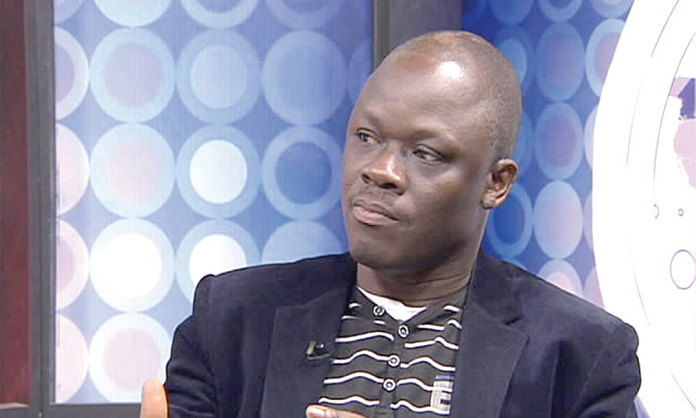A legal practitioner and broadcast journalist, Mr Samson Lardy Anyenini, has stated that there is no vigilante group in Ghana.
Rather, he argues that it is a group of persons encouraged by politicians to break the laws of the country with impunity.
Mr Anyenini was speaking at a public lecture in Tamale on the topic, "Vigilantism and Selective Justice in Ghana: A Threat to National Security."
“These are people engaged in pure lawlessness and not vigilante groups as we have described them,” he declared.
Lawlessness and not vigilantism
Mr Anyenini, who is also the host of Newsfile, a current affairs programme on Joy FM, stated further that: “What we are describing as vigilantism is hooliganism and pure lawlessness and those engaged in these acts must be punished according to the laws of the country.”
The public lecture was organised by the Northern Sector Action and Awareness Centre (NORSAAC), a Non-Governmental Organisation (NGO) committed to improving the lives of women and young people in the Northern Region.
It was also to mark the 15th anniversary celebration of the organisation on the theme, “15 years of empowering women and young people.”
He said vigilantism did not correspond to the dictates of the constitution of the country and, therefore, called for collective efforts from all and sundry to deal with acts of lawlessness and impunity.
Politicians must desist
Mr Anyenini called on politicians to desist from politicising the laws of the country to suit their parochial interest to the detriment of the state, saying lack of enforcement of the laws of the country by law enforcers was what had emboldened people to engage in acts of lawlessness of locking up public institutions and also chasing away public officials from their offices.
“This kind of pure lawlessness that we call vigilantism must be punished,” he stressed.
The Director of Academic Affairs and Research at the Kofi Annan International Peace Training Centre (KAIPTC), Dr Emmanuel Kwesi Anning, who spoke on the topic, “Curbing youth vigilantism in Ghana: A panacea for sustainable democracy,” said he agreed with Mr Anyenini that there were no vigilante groups in Ghana, but rather a group of persons who had taken the laws of the country into their own hands to perpetuate violence.
He stated that such growing acts of hooliganism and criminality perpetuated by these groups of persons we called “vigilantes” in recent times was a threat to national security.
Dr Anning indicated that what had led to a rise in these acts of lawlessness was that those involved felt used and cheated by politicians who promised them jobs and other things.
“What has given rise to these acts of hooliganism and lawlessness in the country is that politicians use the youth to capture political power and afterwards leave them to their fate; so the youth act in such manner to register their protest,” he stressed.
“I am going to lead a campaign in the 2020 general election, where we will make sure that the manifestoes of political parties will be a legal document that will be binding, as is done in other jurisdictions in order for political parties not to take advantage of the youth to exploit them to capture power,” Dr Anning added.
The Executive Director of NORSAAC, Mr Alhassan Mohammed Awal, said NORSAAC, since its establishment in 2002, had been at the forefront of empowering women and the youth to contribute meaningfully to the socio-economic development of the country.

